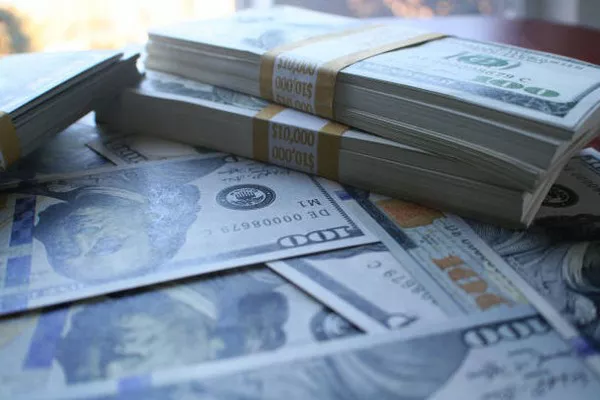In a globalized economy, the ability to transact in different currencies is essential for individuals and businesses alike. For those seeking to buy dollars, banks serve as primary facilitators, offering various channels and services to acquire this widely used currency. Understanding the procedures, fees, and considerations involved in purchasing dollars from banks is crucial for optimizing the process and ensuring financial efficiency.
Procedures for Buying Dollars from Banks:
Selecting the Bank: Choose a reputable bank with a strong presence in foreign exchange services. Research their exchange rates, fees, and customer reviews to make an informed decision.
Account Requirements: To buy dollars from a bank, you typically need to have an account with them. Ensure your account is active and adequately funded to cover the desired amount of dollar purchase.
Visit the Bank: Visit the nearest branch of your chosen bank. It’s advisable to call ahead to confirm their foreign exchange services and inquire about any specific requirements or procedures.
Documentation: Carry valid identification documents such as passport, driver’s license, or national ID card. Additionally, provide any other documents the bank may require for foreign currency transactions, such as proof of address or source of funds.
Currency Exchange Request: Approach the bank’s customer service desk or foreign exchange counter and request to buy dollars. Specify the amount of dollars you wish to purchase and the currency you intend to exchange.
Exchange Rate Inquiry: Before finalizing the transaction, inquire about the current exchange rate for buying dollars. Banks typically offer different rates for buying and selling currencies, known as the bid and ask rates respectively.
Transaction Confirmation: Once you agree to the exchange rate and transaction details, the bank will process your request and provide you with the purchased dollars either in cash or through electronic transfer to your designated account.
Receipt and Documentation: Ensure you receive a transaction receipt detailing the exchanged amount, exchange rate, fees (if any), and the total amount debited from your account or paid in local currency.
Tips for Buying Dollars from Banks:
Monitor Exchange Rates: Keep track of exchange rate fluctuations to identify opportune moments for purchasing dollars when the rate is favorable.
Consider Timing: Plan your dollar purchases strategically, taking into account any upcoming travel, business transactions, or investment opportunities requiring dollar-denominated funds.
Compare Fees and Rates: Compare the exchange rates and fees offered by different banks to get the best deal. Sometimes, smaller banks or specialized currency exchange providers may offer more competitive rates than larger institutions.
Bulk Purchases: If you anticipate regular or large-scale dollar transactions, inquire with your bank about discounts or preferential rates for bulk purchases.
Online Banking Services: Explore your bank’s online banking platform for convenient options to buy dollars electronically. Many banks offer secure and user-friendly interfaces for foreign currency transactions.
Currency Conversion Tools: Utilize online currency conversion tools or mobile apps to calculate the equivalent amount in dollars based on the current exchange rate, ensuring transparency and accuracy in your transactions.
Avoid Currency Exchange Counters: While convenient, currency exchange counters at airports or tourist areas often charge higher fees and offer less favorable rates compared to banks. Whenever possible, conduct your currency exchanges through reputable banking channels.
Considerations when Buying Dollars from Banks:
Exchange Rate Fluctuations: The value of currencies can fluctuate due to various factors such as economic indicators, geopolitical events, and market sentiment. Be prepared for potential fluctuations in the dollar’s value after purchasing.
Transaction Fees: Banks may charge transaction fees, commission, or service charges for buying dollars. Clarify the fee structure beforehand to avoid any surprises and factor these costs into your budget.
Regulatory Compliance: Banks are required to comply with regulations governing foreign currency transactions, including anti-money laundering (AML) and know your customer (KYC) requirements. Ensure your transactions comply with these regulations to prevent any delays or complications.
Exchange Rate Risks: Consider the impact of exchange rate fluctuations on your financial objectives, especially if you’re holding dollars for an extended period or engaging in cross-border transactions.
Currency Hedging: For businesses or investors exposed to currency risk, consider hedging strategies such as forward contracts or options to mitigate the impact of adverse exchange rate movements.
Conclusion:
Buying dollars from banks involves a series of procedures, considerations, and tips to ensure a seamless and cost-effective transaction. By understanding the process, monitoring exchange rates, comparing fees, and considering relevant factors, individuals and businesses can optimize their dollar purchases and navigate the complexities of the foreign exchange market with confidence. Remember to stay informed, plan ahead, and leverage the resources available to make informed decisions when buying dollars from banks.


